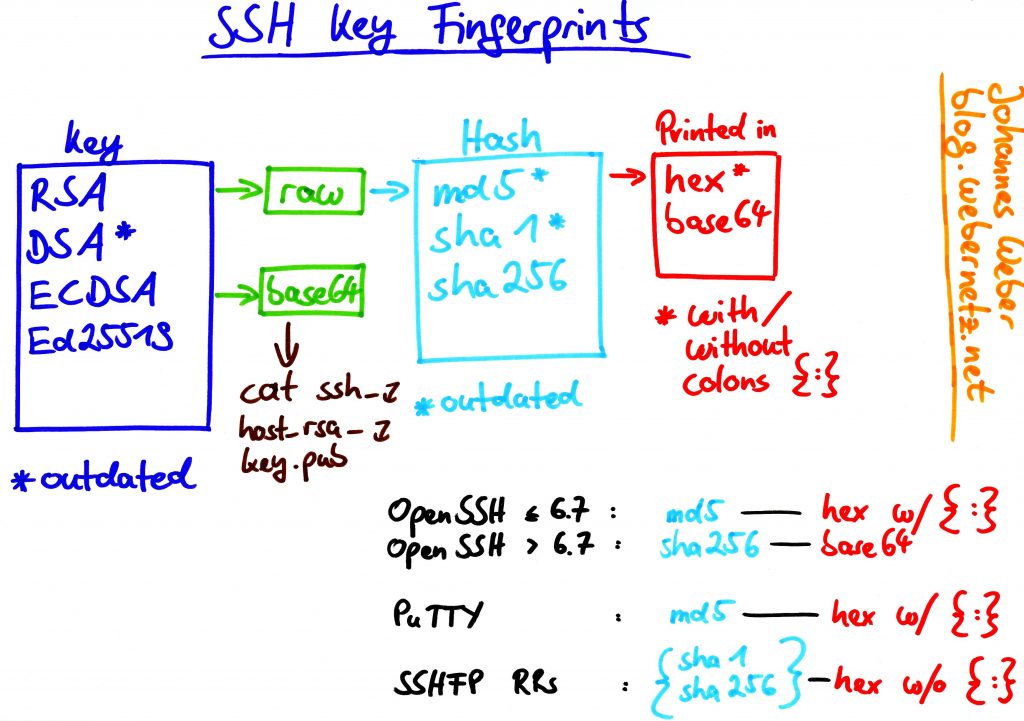Generate /etc/ssh/ssh_host_dsa_key
A host public-key pair (1536-bit RSA) is always generated during the installation of SSH Tectia Server. You only need to regenerate it if you want to change your host key pair.
So this more about logging of unnecessary messages in the default configuration. By default, only RSA keys are created and no particular keys are set in sshdconfig so that sshd tries use all 3 types - dsa,rsa, ecdsa - regardless of their existence. Introduction to SSH, how it's better than telnet and basic ssh commands. SSH Keys: RSA and DSA; Learn about SSH public and private keys, along with the most widely used key types - RSA and DSA. Also learn how to easily copy your public key to a host server with the ssh-copy-id command. SSH Agent and SSH Add.
The command-line tool ssh-keygen-g3 can be used to generate the host key pair. It can be used for creating the user key pairs as well.
- The ssh-keygen program can be used for generating additional host keys or for replacing existing keys. Known Host Keys. SSH clients store host keys for hosts they have ever connected to. These stored host keys are called known host keys, and the collection is often called known hosts. In OpenSSH, the collection of known host keys is stored in /etc/ssh/knownhosts and in.ssh.
- Sep 21, 2011 Tutorial: Setting up SSH keys Posted on September 21, 2011 September 21, 2011 by roy Using SSH is a great way to remotely manage a server and to securely transfer data to and from it.
On Unix, to (re)generate the host key, give the following command with root privileges:
Generate ssh secret key mac. where:
Ssh Regenerate Host Key

-P indicates that the key has an empty passphrase
-H indicates that the key pair is stored in the default host key directory
On Windows, to (re)generate the host key, give the following command:
Generate /etc/ssh/ssh_host_dsa_key Pdf
This will generate a 2048-bit DSA key pair (without a passphrase) and save it in the default host key directory (/etc/ssh2 on Unix, 'C:Program FilesSSH Communications SecuritySSH TectiaSSH Tectia Server' on Windows) with the names hostkey and hostkey.pub. For more information on the key generation options, see ssh-keygen-g3(1).
After the new key pair has been created, run ssh-server-config-tool to reconfigure the server. See ssh-server-config-tool(8).
| Note |
|---|
The private key of the server must never be readable by anyone but |
Copyright 2010 SSH Communications Security Corp.
This software is protected by international copyright laws. All rights reserved.
Contact Information
How do I create a host key file to use with my applications as I can not use system defined /etc/ssh/ssh_host_rsa_key for non-root account under Linux / Unix / Apple OS X / *BSD operating systems?
You need to use a command called ssh-keygen. This command generates, manages and converts authentication keys for ssh. It can create RSA keys for use by SSH protocol version 1 and RSA or DSA keys for use by SSH protocol version 2. he type of key to be generated is specified with the -t option. If invoked without any arguments, ssh-keygen will generate an RSA key for use in SSH protocol 2 connections. The -f option specifies the filename of the key file.
Why create a new host key files?
You may need a new key file:
- Your system is compromised.
- Your keys are stolen.
- You forgotten the passphrase.
- Your application need a new host key.
- You can not read the default system key files stored in /etc/ssh/ directory but your non-root application needs key.
- You got an error message which read as “Could not load host key: /etc/ssh/ssh_host_key*”.
ssh-keygen Syntax
The syntax is:
Example
Create a host key file in your $HOME/.ssh/myapp as follows. First, create a directory to store your host key file, enter:$ mkdir -p $HOME/.ssh/myapp
To create a host RSAv2 key file, run:$ ssh-keygen -t rsa -f $HOME/.ssh/myapp/rsa_key_file
Sample outputs:
Ssh Key Example
Type the following commands to verify the keys:$ ls -l $HOME/.ssh/myapp/
Sample outputs:
You can now use keys with your app:$ mycool-app -key $HOME/.ssh/myapp/rsa_key_file -d
Generate /etc/ssh/ssh_host_dsa_key Number
ADVERTISEMENTS